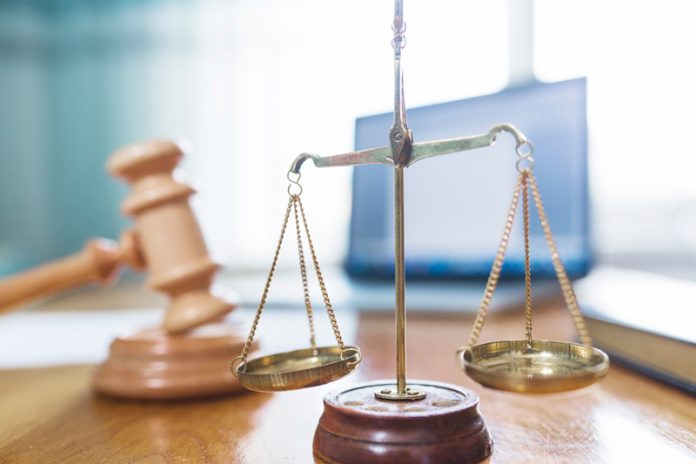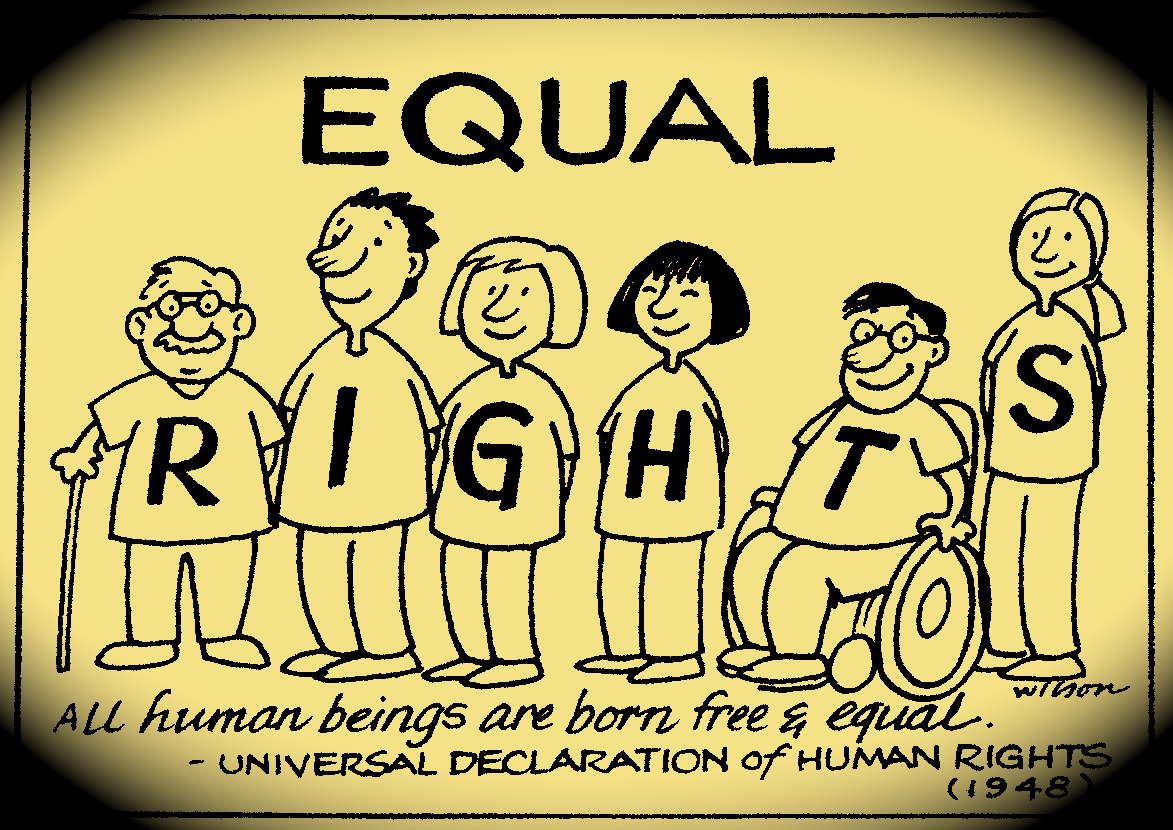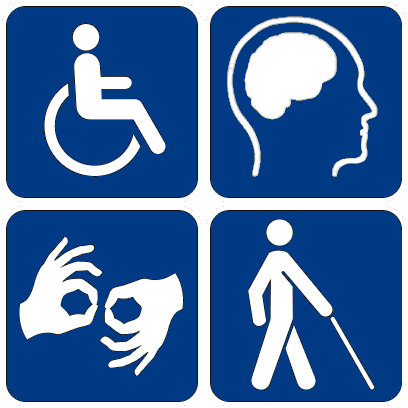This article has been written by Tejasvi Kumar Sharma pursuing a Certificate Course in Advanced Criminal Litigation & Trial Advocacy from LawSikho.
This article has been edited and published by Shashwat Kaushik.
Table of Contents
Introduction
Even today, people with disabilities and the general public are unaware of their rights. That is why they are facing a lot of challenges and hardships in their lives. So in this particular article, the readers are going to learn and know about the Key Provisions of the Rights of Persons with Disabilities Act, 2016, (hereinafter referred to as the “Act”), which can be invoked by persons with disabilities as well as by the common man. This article will help them understand the important definitions and key provisions of the Act.
Objectives of the Act
The Act was enacted in 2016 and received presidential assent on December 27, 2016. It became operational on April 19, 2017. It replaced the previous Act, which was the Persons with Disabilities (Equal Opportunities, Protection of Rights and Full Participation) Act, 1995.
By bare reading of the preamble of this act, it is abundantly clear that it aims to uphold the dignity of persons with disabilities (hereinafter referred to as PwD) and prevent any kind of discrimination faced by PwD in the country. The act also ensures the full participation and inclusion of PwD in society.
The Act is substantive as well as procedural in nature.
Before reading this article, it is important to know, who is a person with a disability?
Section 2(s) of the Act defines “person with disability” as a person who is unable to perform as a consequence of his/her physical, mental, intellectual, or sensory unfitness.
Who is eligible to enjoy the rights & facilities given under the Act
As per the Act, “only” persons with benchmark disabilities” are eligible to enjoy the rights and facilities given under the Act.
And Section 2(r) of the Act, defines “person with benchmark disability” as a person with not less than 40% (forty percent) of a specified disability. The specified disability can only be certified by the certifying authority.
And in the Act itself, it is given that who is the certifying authority ?
As per Section 57(1), which provides that the appropriate government shall designate persons, who have the requisite qualifications and experience as certifying authorities who shall be competent to issue the certificate of disability.
The above-mentioned definitions are important for the readers to understand before reading the whole article because, as per the Act, only persons with benchmark disabilities are going to benefit.
And if the person has less than forty percent of disability and they are facing any kind of discrimination, then in that case they can move to avail themselves of the rights given under Constitution of India or under the provisions given in other penal laws like the Indian Penal Code of 1860, etc.
So far, we have understood who a person with a disability is. Now, another question will arise in the minds of readers about the categories of disabilities.
So in the Act itself, there is a Schedule attached to it, which categorises the disabilities into 21 types.
Following is the list:
- Blindness
- Low-vision
- Leprosy persons
- Hearing Impairment
- Locomotor Disability
- Dwarfism
- Intellectual Disability
- Mental Illness
- Autism Spectrum Disorder
- Cerebral Palsy
- Muscular Dystrophy
- Chronic Neurological Conditions
- Specific Learning Disabilities
- Multiple Sclerosis
- Speech and Language Disability
- Thalassemia
- Hemophilia
- Sickle Cell Disease
- Multiple disabilities, including deaf-blindness
- Acid attack victims
- Parkinson’s disease.
The above-mentioned schedule clearly specifies the categories of disabilities, which is important for the reader to understand. Only the persons, who come under this exclusive list given by the government have the right to invoke the provisions of the Act.
Now we come to another aspect of the Act. In most of the sections of this Act, the readers will find the terms “appropriate government” and “local authority.” So what does it mean ?
Section 2(b) of the Act defines the term “appropriate government” as having two types first as a central government and a state government. In relation to the Central Government or any establishment wholly or substantially financed by that Government, or a Cantonment Board. In relation to a state government or any establishment wholly or substantially financed by that government, or any local authority other than a cantonment board.
So under most of the provisions of this Act, the liability is on the appropriate government and local authority to ensure that PWD can avail themselves of and invoke the rights and facilities given under the Act.
Before moving forward, one important point to be noted here is that the authorities mentioned above come under the definition of “state,” which is given under Article 12 of the Constitution of India.
The definition of the state under Article 12 is applicable for invoking fundamental rights. Which means, whenever your fundamental rights have been violated, the aggrieved party can directly move to the Supreme Court under Article 32 and to the High Court under Article 226. After understanding the important terms, which are frequently used in the Act. Now come the provisions, which provide the rights and empower PWD.
The first and foremost right is given under Section 3(1) of the Act, which provides that it is the duty of the appropriate government to ensure that PWD enjoys the right to equality, life with dignity and respect for his or her integrity equally with others.
Even a similar right has been given under Article 14 of the Indian Constitution, which provides that it is the duty of the state to ensure equality before the law and equal protection of the laws for its citizens. Another clause of Section 3(3) provides that no person with a disability shall be discriminated against on the ground of disability.
The act has itself provided the definition of “discrimination” under Section 2(h), which states that discrimination in relation to disability means any distinction, exclusion, or restriction on the basis of disability and fundamental freedoms in the political, economic, social, cultural, civil or any other field and includes all forms of discrimination and denial of reasonable accommodation.
Even Article 15 of the Indian Constitution prohibits discrimination on grounds of religion, race, caste, sex, or place of birth.
Another clause of Section 3(4) of the Rights of Persons with Disabilities Act, 2016 (RPwD Act) in India provides an important safeguard against discrimination on the basis of disability. It states that “only” on the ground of disability shall no person be deprived of his or her personal liberty. This clause ensures that individuals with disabilities cannot be arbitrarily detained or confined solely due to their disability. It recognises that disability should not be a reason for limiting a person’s freedom of movement or autonomy.
The purpose of this clause is to protect the rights and dignity of persons with disabilities by preventing their unlawful detention or confinement based solely on their disability. It emphasises that disability should not be a barrier to personal liberty and that individuals with disabilities have the same rights to freedom of movement and personal autonomy as everyone else.
This clause is particularly significant in light of the historical and ongoing discrimination faced by people with disabilities, including forced institutionalisation and segregation. It serves as a legal safeguard against such practices and promotes the principle of equality and inclusion for persons with disabilities.
It also aligns with the United Nations Convention on the Rights of Persons with Disabilities (CRPD), which recognises the right of persons with disabilities to live independently and to make their own choices. The CRPD emphasises that persons with disabilities have the right to choose where and with whom they live and to not be deprived of their liberty unlawfully or arbitrarily.
Overall, this clause in Section 3(4) of the RPwD Act plays a crucial role in upholding the rights of persons with disabilities and preventing discrimination based on disability. It ensures that individuals with disabilities are not deprived of their personal liberty solely due to their disability and promotes their right to live independently and make their own life choices.
A similar right can also be found under Article 21 of the Indian Constitution, which protects the personal liberty of its citizens.
Before moving on to the other key provision of this Act, it is pertinent to note that the highlighted words (like – right to equality, life with dignity and respect, discrimination on the grounds of disability, and personal liberty) in Section 3 have a wider meaning and their origin can be traced to the Indian Constitution. Especially under Part III of the Indian Constitution.
Section 4 of the Act, specifically dedicated to the rights and entitlements of women and children with disabilities, plays a crucial role in ensuring their well-being and equality within society. This section outlines the responsibilities of the appropriate government in safeguarding their rights and promoting their full participation in all aspects of life.
As per Section 4(1), the appropriate government is entrusted with the duty to ensure that women and children with disabilities enjoy their rights equally with others. This entails creating an environment where they have equal opportunities to access education, employment, healthcare, and other essential services. It also involves implementing measures to prevent discrimination and promote inclusivity in all spheres of life.
The government is required to take proactive steps to identify and address the specific needs of women and children with disabilities. This may include providing reasonable accommodations in educational institutions, workplaces, and public spaces to ensure their full participation. Additionally, the government must work towards raising awareness about the rights of women and children with disabilities, challenging societal stereotypes and prejudices, and fostering a more inclusive and understanding society.
Section 4 of the Act recognises that women and children with disabilities often face unique challenges and barriers due to their intersectional identities. As such, it emphasises the need for tailored interventions and policies to address their specific vulnerabilities. By focusing on their rights and entitlements, the Act aims to create a more equitable society where women and children with disabilities can live with dignity, respect, and independence.
Now, another question that is bound to come to the minds of the readers is, where to go when your rights have been violated?
So, the answer to the above-mentioned question can be found under Section 7(2) of the Act, which provides that any person or organisation who or which has reason to believe that an act of abuse, violence or exploitation has been, is being, or is likely to be committed against any person with a disability can inform the local executive magistrate within whose jurisdiction such incidents occur.
Now comes the very crucial question, what will a police officer do after receiving a complaint? Is he bound to take action?
Well, the answer to this question is given under Section 7(4), of the Act, which provides that any police officer who receives a complaint or otherwise comes to know of abuse, violence or exploitation towards any person with a disability shall inform the aggrieved person about his or her rights. Not only this, it is the duty of the police officer to provide details of the local executive magistrate and of the nearest organisation or institution working for persons with disabilities.
As per Section 7(4)(c), it is the duty of the police officer to inform the aggrieved person about the right to free legal aid.
It is pertinent to note here that under Section 7(4)(c), the right to free legal aid has been provided, which means that persons with disabilities in this country have been conferred with the right to free legal aid. For example, as per Chapter VI, Rule 9, of the Delhi Legal Services Authority Regulation 2002, persons with disabilities are eligible for free legal aid services. Likewise, other states also provide free legal aid to people with disabilities in their respective states.
Even Section 12(3) of the Act imposes a duty on the National Legal Services Authority and the State Legal Services Authorities constituted under the Legal Services Authorities Act, 1987, to make provisions including reasonable accommodation to ensure that persons with disabilities have access to any scheme, programme, facility or service offered by them equally with others.
Where should I go if police officials or any other department are not helping us
In that case, Section 75(1)(b) and Section 80(b) come into play. As per Section 75(1)(b), if the matter is related to which the Central Government is the appropriate authority, then the Chief Commissioner of Persons with Disabilities shall inquire into the matter suo-motu or otherwise and take up the matter for corrective action.
Section 80(b) if the matter is related to which the state government is the appropriate authority, then the state commissioner of persons with disabilities shall inquire into the matter suo-motu or otherwise and take up the matter for corrective action.
Last but not least, it is important to know that, what is the punishment for contravention of provisions of the Act or rules or regulations made thereunder?
As per Section 89 of the Act, any person who contravenes any of the provisions or rules of this Act shall be punished with fine.
Landmark judgements surrounding Rights of Persons with Disabilities Act, 2016
Rajive Raturi vs. Union of India & Ors. (2018)
In this case, the Hon’ble court had directed the Bar Council of India (BCI) for Law Colleges and the UGC for other Colleges/Universities to constitute a Committee for persons with disabilities to undertake a detailed study for making provisions with respect to accessibility, pedagogy and also to suggest the modalities for implementing those suggestions, their funding and monitoring, etc. Not only this the Committee will have to lay down the time limits within which such suggestions could be implemented.
Jeeja Ghosh & Anr vs. Union Of India & Ors (2016)
The facts of the case, in a nutshell, are that Ms. Jeeja Ghosh is a disabled person who suffers from cerebral palsy. During a journey from Kolkata to Goa via airline. She was ordered by the staff of SpiceJet Ltd. to get off the plane because of her disability.
Aggrieved by the incident, she filed a Writ Petition under Article 32 of the Constitution of India, stating that the behaviour of airline crew was discriminatory.
The Hon’ble Court said that Jeeja Ghosh was not given appropriate, fair and reasonable treatment for which she was required to show due sensitivity and the decision to de-board her in the given circumstances was an example of a total lack of sensitivity.
The Hon’ble Court found that SpiceJet acted in an insensitive manner and awarded Rs. 10, 00, 000 as damages.
Avni Prakash vs. National Testing Agency (2021)
The fact of the case, in nutshell, was that the petitioner was suffering from dysgraphia with 40% permanent disability. When she appeared for the National Eligibility and Entrance Test (NEET), she was denied the relaxation.
The Court observed in this case that the National Testing Agency (NTA) was bound to follow the Guidelines on Written Examination. It was further observed that it was the duty of the NTA to ensure that all the designated centres were aware of the provisions made for persons with disabilities and that reasonable accommodation could be denied to them.
State Of Kerala vs. Leesamma Joseph (2021)
In this case, the issue was whether the persons with disabilities were entitled to reservation in promotion.
The Hon’ble Supreme Court has observed that the intention of the 1995 and 2016 Act is to ensure that the PWD are provided with equal opportunity, and such an opportunity can be provided only by granting them reservation in promotion.
Conclusion
From the title of this article, it is clear that the objective behind writing this article is to empower persons with disabilities and to discuss the key provisions of the Rights of Persons with Disabilities Act, 2016. That’s why all the sections of the RPWD Act, 2016 have not been discussed. The sections that have been discussed above are sufficient and can be invoked in cases of violation of any right given under the Act. Particularly Section 3 of the RPWD Act, 2016. The rights and entitlements given under Section 3 have a wider meaning and scope. For example- Section 3(1) – the right to equality, life with dignity and respect for his or her integrity equally with others. Section 3(3) – No person with a disability shall be discriminated against on the ground of disability. Section 3(4) – No person shall be deprived of his or her personal liberty only on the ground of disability.
So if any person with a disability faces any discrimination, whether it is related to accessibility, healthcare, access to justice, education, employment, sporting activities, etc., they can rely on Section 3 of the Act, and in case any person needs any assistance to invoke this section or any provisions of this Act, they can rely on Section 7(4)(c), where the right to free legal aid has been provided. Which means they can directly call the State Legal Services Authority and ask for legal assistance. Although, as per Section 39 of the RPWD Act, 2016, it is the duty and responsibility of the appropriate government to do awareness campaigns for persons with disabilities, being a citizen of India this is also our moral duty to empower persons with disabilities by spreading awareness about their rights.
References
- http://www.ccdisabilities.nic.in/sites/default/files/2021-08/RPwDAct2016.pdf
- https://indiankanoon.org/doc/609295
- https://www.indiacode.nic.in/
 Serato DJ Crack 2025Serato DJ PRO Crack
Serato DJ Crack 2025Serato DJ PRO Crack










 Allow notifications
Allow notifications


